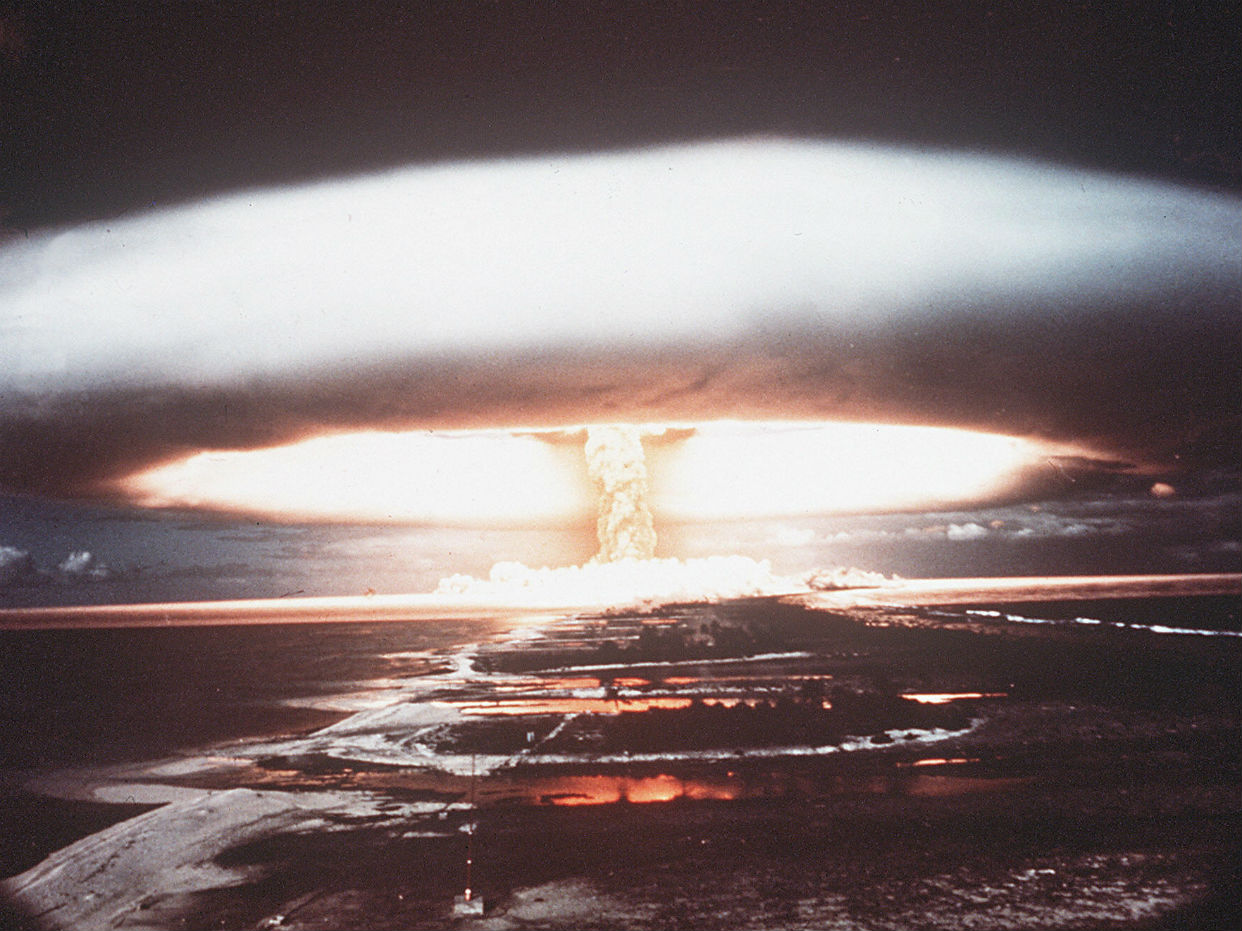Is a world government the answer to global issues?
Survey suggests majority of Britons would support the creation of a form of global administration

A free daily email with the biggest news stories of the day – and the best features from TheWeek.com
You are now subscribed
Your newsletter sign-up was successful
A majority of Britons would back the formation of a world government to coordinate global efforts on natural and man-made catastrophes, according to a new survey.
Who conducted the survey?
The Global Challenges Foundation, a Swedish think-tank, commissioned a survey by ComRes of more than 8,000 people in eight countries ahead of the G7 summit in Sicily this week, reports The Independent.
The Week
Escape your echo chamber. Get the facts behind the news, plus analysis from multiple perspectives.

Sign up for The Week's Free Newsletters
From our morning news briefing to a weekly Good News Newsletter, get the best of The Week delivered directly to your inbox.
From our morning news briefing to a weekly Good News Newsletter, get the best of The Week delivered directly to your inbox.
People in Australia, Brazil, China, Germany, India, South Africa, the UK and the US were asked what they felt was the most serious threat to mankind, including disease, a massive volcanic eruption, artificial intelligence turning against us, weapons of mass destruction and ecological collapse.
What are the greatest perceived threats?
Climate change came out top in all eight countries, which are collectively home to half the population of the planet.
Eighty-eight per cent of respondents said they would be prepared to make changes that would affect their living standards to prevent catastrophic climate change in the future.
A free daily email with the biggest news stories of the day – and the best features from TheWeek.com
In the UK, 80 per cent of those surveyed ranked climate change as the greatest threat to the planet. The threat of nuclear war and use of weapons of mass destruction came in second.
What are the solutions?
Almost seven in ten Britons (69 per cent) said they would support the creation of a new "supranational organisation to make enforceable global decisions" about major threats, while 54 per cent would be happy for the UK to give up some of its sovereignty to address the world's most serious problems.
Support for a world government was highest in India (84 per cent), followed by China (78 per cent) and South Africa (76 per cent), but the idea was popular across the board. US support was 67 per cent while Germany had the lowest figure at 62 per cent.
Ahead of Friday's G7 summit in Italy, Global Challenges Foundation vice chairman Mats Andersson urged nations to work together to address people's fears.
"Whether it's the spectre of nuclear conflict over North Korea or our planet tipping into catastrophic climate change, the need for effective global cooperation has never been greater," he said.
-
 How to Get to Heaven from Belfast: a ‘highly entertaining ride’
How to Get to Heaven from Belfast: a ‘highly entertaining ride’The Week Recommends Mystery-comedy from the creator of Derry Girls should be ‘your new binge-watch’
-
 The 8 best TV shows of the 1960s
The 8 best TV shows of the 1960sThe standout shows of this decade take viewers from outer space to the Wild West
-
 Microdramas are booming
Microdramas are boomingUnder the radar Scroll to watch a whole movie
-
 Epstein files topple law CEO, roil UK government
Epstein files topple law CEO, roil UK governmentSpeed Read Peter Mandelson, Britain’s former ambassador to the US, is caught up in the scandal
-
 Iran and US prepare to meet after skirmishes
Iran and US prepare to meet after skirmishesSpeed Read The incident comes amid heightened tensions in the Middle East
-
 Israel retrieves final hostage’s body from Gaza
Israel retrieves final hostage’s body from GazaSpeed Read The 24-year-old police officer was killed during the initial Hamas attack
-
 China’s Xi targets top general in growing purge
China’s Xi targets top general in growing purgeSpeed Read Zhang Youxia is being investigated over ‘grave violations’ of the law
-
 Panama and Canada are negotiating over a crucial copper mine
Panama and Canada are negotiating over a crucial copper mineIn the Spotlight Panama is set to make a final decision on the mine this summer
-
 Why Greenland’s natural resources are nearly impossible to mine
Why Greenland’s natural resources are nearly impossible to mineThe Explainer The country’s natural landscape makes the task extremely difficult
-
 Iran cuts internet as protests escalate
Iran cuts internet as protests escalateSpeed Reada Government buildings across the country have been set on fire
-
 US nabs ‘shadow’ tanker claimed by Russia
US nabs ‘shadow’ tanker claimed by RussiaSpeed Read The ship was one of two vessels seized by the US military